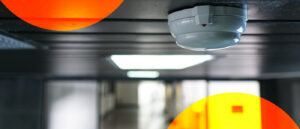Carbon dioxide (CO2) is an odorless, colorless gas found in the air we breathe on a daily basis. While “natural” CO2 exposure is harmless (humans produce CO2 and exhale it into the atmosphere), heavy concentrations can lead to serious health issues, and even death.
Common carbon dioxide hazards include improper storage of CO2 tanks in poorly ventilated areas, leaking compressed CO2 systems and leaking fittings, piping or carbonators. In rare instances, heavy doses of carbon dioxide can escape from underground and into the atmosphere. While carbon dioxide hazards are most often associated with commercial environments, CO2 poisoning can also occur in homes.
The Signs of Carbon Dioxide Poisoning
Because carbon dioxide gas is odorless and colorless, people are usually unaware of its presence until they begin to experience the symptoms of CO2 poisoning. These include an increased rate of respiration, rapid or irregular heartbeat and impaired consciousness. Exposure to extremely high CO2 concentration levels include convulsions and coma, which may ultimately result in death. Individuals experiencing these symptoms should be immediately removed from the area and administered oxygen. Assisted ventilation may be required in severe cases.
CO2 Prevention
The good news is that there are steps you can take to lower your risk of carbon dioxide poisoning. Carbon dioxide prevention in a work or home environment requires attention to the following safety tips:
- Commercial environments:
-
- Training all personnel on safe CO2 handling practices
- Installing CO2 receptacles above ground in open, well-ventilated areas
- Developing and implementing effective CO2 monitoring procedures
- Installing a CO2 detection device and notification system
- Placing highly visible signs warning of the potential dangers of carbon dioxide
- Establishing an inspection and maintenance procedure pertaining to CO2 equipment
- Residential environments
-
- Keeping your home naturally ventilated by installing screens that enable you to keep doors and windows open in warmer weather
- Installing a whole house ventilation system if keeping doors and windows open does not provide sufficient air quality improvements
- Properly maintaining your home’s HVAC system and having it professionally inspected on a regular basis
Installing CO2 Detectors
The installation of CO2 detectors can indicate the presence of a potentially harmful accumulation of carbon dioxide gas. These devices will measure carbon dioxide in the surrounding atmosphere and sound an alarm if it reaches an unsafe level. They can also deliver an alert to a central monitoring station that can dispatch first responders to the scene, if needed.
Contact Titan Alarm, Inc. to Learn More About the Dangers of Carbon Dioxide
Titan Alarm, Inc. can protect your Phoenix-area home or business against all types of health and safety threats, including the risk of carbon dioxide poisoning. We can design and install an innovative residential or commercial alarm system that includes reliable CO2 detectors placed at the most vulnerable locations in your building. Contact us for more information and schedule a no-obligation consultation today.

